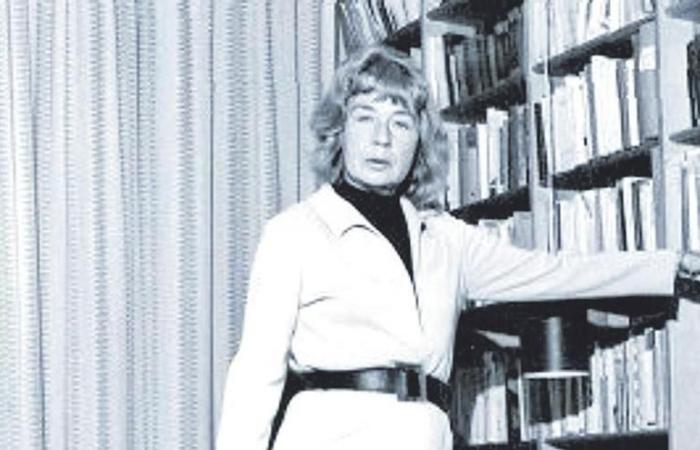Ditlevsen: The cold fire that sparks in his storiesIT
There are videos on YouTube where the image is a fireplace in which the fire slowly consumes the wood while you can hear the flames crackling. It could be ideal for the winter months, the problem is that it does not heat and its burn is the cold. Let’s say that something similar happens in the stories that the renowned Danish writer Tove Ditlevsen (1917 – 1976, Copenhagen) tells us in ‘Felicidad perversa’ that Seix Barral is publishing these days, where she collects two books of stories, and that through the phrase From one of her stories comes a message from the author: «(…) hate is as senseless as love. Although its fire is cold, its burn hurts the same. And sometimes the fire in the home can be like a YouTube video. Another illustrative phrase is “Helga had always expected from life – against all logic – much more than it could give her”, with this beginning the first story ‘The Umbrella’ begins, with the homonymous title of the same book by Ditlevsen published for the first time in 1952, and which is now published in Spain together with ‘Felicidad perversa’ (1963) in the same edition. It is a book that collects psychological stories from one of Denmark’s great writers, and in 2021 Seix Barral had already published ‘Copenhagen Trilogy’, and in 2023 her novel ‘The Faces’.
The author, through the narrative genre of the story, shows us human conflicts that she turns into literary conflicts, we could say, are they stories that seem real or realities that seem like stories? This finesse characterizes Ditlevsen, and it also serves to provide us with a critical view of society regarding the role, in some of these stories, with which many women were compelled, in one way or another, by issues related to the role. of gender, or even couple relationships, which we could say are emotionally abusive, but also, in other cases, it narrates complicated family situations, just take as an example the culmination of a divorce in ‘A morning in a residential neighborhood’ or in ‘ The Stubborn Life’, where a woman becomes pregnant by a married man who is only interested in keeping “the façade of bourgeois well-being and family life intact”, while she has to decide whether to have the child.
In these stories from the Chekhovian tradition we find characters with lives punished by conflicts that grip them, and although today it seems that it is common for writers to use a character narrator, Ditlevsen writes in a classic way, in the sense of using an omniscient narrator where The direct style is predominant, and the twist in the plot to unleash the end of the story with a skillful narrative rhythm whose clean language serves surgically as a tool to penetrate the psychology of the characters and focus on their conflicts as something universal, to through a literature that even today, forty-eight years after his death, rises above other living writers of the short story genre.
- Tove Ditlevsen
- Editorial: Six Barral
- Translation: Blanca Ortiz Ostalé
- 256 pages
- Price: €19.90
However, there is one story that stands out above the others, it is the one that gives the title to this volume, ‘Perverse Happiness’, where, distinguishing itself from the other stories that make up this book, Ditlevsen uses a protagonist narrator, a teenager about to die. turning eighteen, who, due to his desire to free himself from what oppresses him in his family home and his literary concerns, “fights for everything that matters to you” as the legend of a mother-of-pearl seamstress that the protagonist cites says.
It is inevitable when one thinks about Danish literature to remember another woman, the extraordinary Karen Blixen, a free woman who through her memoirs told us about her adventure in Africa, taking an interest in the local population in the last decades of colonialism, and her love relationship. with the British Denys Finch-Hatton, a story immortalized in one of the great connections between cinema and literature, the magnificent film by director Sydney Pollack, ‘Out of Africa’. However, the comparison between Karen Blixen and Tove Ditlevsen, despite both transmitting, each in their own way, a claim of a contemporary woman, is unequal as they come from different worlds, on the one hand the aristocracy of Blixen and on the other the Ditlevsen’s working world. The author of ‘Perverse Happiness’, who for financial reasons could not finish her studies, would end her days with a fatal intake of sleeping pills, a sad ending of autolysis tragically shared with other greats of 20th century literature such as Virginia Woolf or Ernest Hemingway . Ditlevsen had a complicated life, she grew up in a working-class neighborhood of Copenhagen, where literature allowed her to escape the difficulties of her social environment, which was harsh for a sensitive spirit, as she describes in her ‘Copenhagen Trilogy’.






